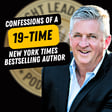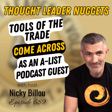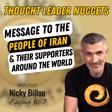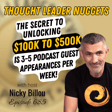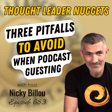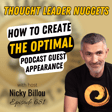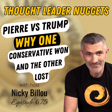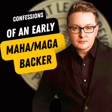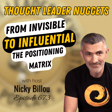
EP638: Robert Young Pelton - A Renaissance Man Living In Dangerous Places
What happens when adventure, craftsmanship, and innovation intersect? Have you ever wondered how a tool can transcend its function to embody the philosophy, resilience, and experience of its creator? Or what compels someone to trade the comforts of normalcy for the chaos of war zones and uncharted territories? What does it mean to put yourself on the front lines of history—geographically, emotionally, and morally? Uncover what drives individuals to document humanity’s rawest realities, often at great personal risk, and why these stories matter so deeply.
Knives are among humanity’s oldest and most essential tools, but they’re so much more than just blades. In this episode, we delve into the artistry, engineering, and philosophy behind heirloom-quality knives. Explore the delicate balance between form and function, the challenges of designing tools for extreme conditions, and the fascinating cultural and historical narratives surrounding these objects.
Robert Young Pelton is a Canadian-American author, some of the books he wrote are The World’s Most Dangerous Places, Come Back Alive, The Adventurist, and Three Worlds Gone Mad. He’s a journalist, and documentary film director known for his fearless conflict reporting and interviews with military and political figures in war zones. A modern-day renaissance man, Pelton’s life defies convention. He is an adventurer, journalist, and knife maker whose career has taken him to some of the globe’s most dangerous and transformative places.
From designing innovative, durable knives with over 20 patents to embedding himself in conflicts across Afghanistan, Iraq, and Ukraine, Robert brings a wealth of unfiltered insights. His work, featured in outlets like CNN and CBS, captures the stories of rebels, soldiers, and everyday people navigating extraordinary circumstances.
Visit eCircleAcademy.com and book a success call with Nicky to take your practice to the next level.

